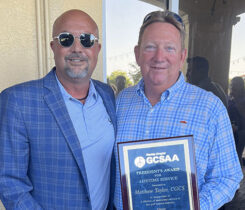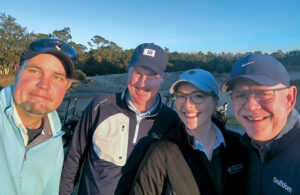GCSAA releases survey findings on golf course pest management practices
The Golf Course Superintendents Association of America (GCSAA) released its findings on its survey on pest management practices.
The survey found the number of golf facilities engaging in the pest management practices listed in the survey remains high. The survey indiciated 50 percent of the courses used 13 of the 17 practices listed. GCSAA said the high use of various pest management practices reflects efforts to reduce the use of pesticides as the sole treatment for turfgrass pests in the industry. The results show some individual practices increased while others decreased.
The most frequently used pest management practices according to the report included monitoring the weather, scouting, employing pesticide resistance management strategies, improving turfgrass health, implementing cultural practices and spot treatment of damage.
GCSAA surveyed more than 1,400 golf course superintendents for its 2021 survey, A Continued Investigation into Pest Management Practices on U.S. Golf Courses. Travis Shaddox, Ph.D., owner of Bluegrass Art and Science, and J. Bryan Unruh, Ph.D., from the University of Florida, collected and independently analyzed the survey results.
“Environmental stewardship is vital to the future of the golf industry, and GCSAA continues to offer tools and resources to assist facilities in employing environmental best management practices, such as our BMP facility tool and integrated pest management tools available on GCSAA.org,” said Rhett Evans, CEO of GCSAA. “The purpose of the Golf Course Environmental Profile is to provide data that not only shows how practices have improved but also where continued improvement is needed. We encourage all facilities to incorporate best management practices into their daily operations.”
The National Golf Foundation (NGF) published the findings for peer review before making the information public and the United States Golf Association (USGA) funded the survey in part through the GCSAA Foundation.












